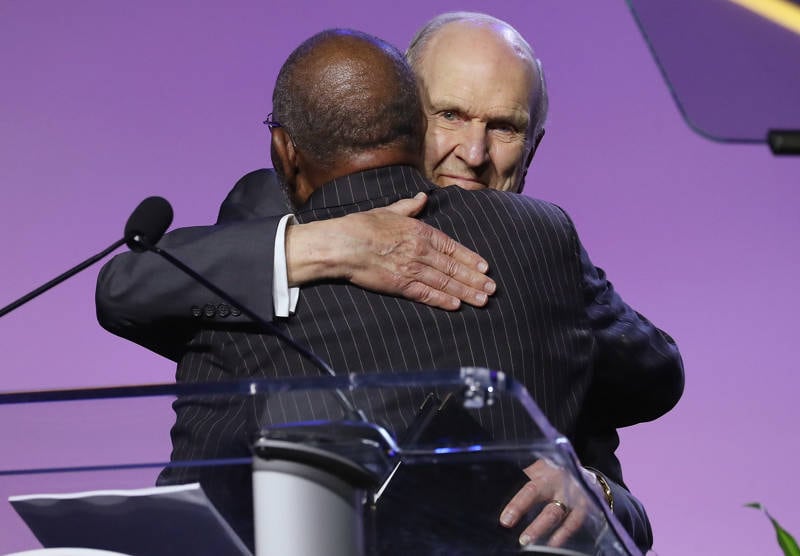I came to know President Russell M. Nelson in 2018 when, on his initiative, The Church of Jesus Christ of Latter-day Saints volunteered to fund the restoration of the office of the slain civil rights leader Medgar Evers in my hometown of Jackson, Mississippi.
This was not only a tangible effort by the church to build a bridge across racial lines, but it was of immense personal meaning to me.
Medgar Evers was my first mentor. As a teenager I met him in that office and with him I attended my first NAACP convention, the organization whose board I would later serve on for many years. And I attended Medgar Evers’ funeral in that office, standing next to Dr. Martin Luther King Jr.

That connection led to not only a close working relationship between me and President Nelson, but also a deep, personal connection with him.
I had the privilege to introduce him to the NAACP convention in Detroit in 2019, and for the rest of his life we came to know and deeply respect one another. I came to know him as a person of great integrity and courage, who loved God and his church, and who was dedicated to being an agent of change.
It is deeply tragic that, on the day his death was announced, there was a senseless and violent attack on a Latter-day Saint meetinghouse in Michigan during worship.
President Nelson was a man of peace who was steadfast in his belief in the dignity and worth of all people. He would have condemned this act of violence, as we all must, regardless of our politics or faith. Violence is not and cannot be the answer to our grievances.
Even as we condemn that horrific act, we must not let it overshadow our memory of President Nelson and his lifelong dedication to “building bridges, not walls.”
I will always think of President Nelson fondly as my “brother of a different mother” who was fearless in life and should be remembered as a prophet of progress who devoted his life to creating a better world.

